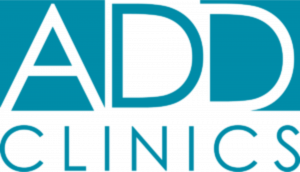
The Challenges of Managing Finances with ADD
“ADD often presents unique hurdles when it comes to managing day-to-day tasks, and financial management is no exception,” says Dr. Owen. “For those with ADD, tasks like tracking expenses, paying bills on time, and sticking to a budget can feel overwhelming, leading to stress and sometimes even financial instability.”
The Impact of ADD on Financial Management
ADD is a neurological condition that affects an individual’s ability to focus, prioritize tasks, and organize information. These symptoms can have a significant impact on an individual’s ability to manage finances effectively. For example, forgetting to pay bills on time, overspending, and failing to keep track of savings goals are common struggles for people with ADD.
One of the biggest financial challenges for individuals with ADD is managing impulse control. Impulsive spending—whether it’s on a whim in a store or on an online purchase—can quickly add up, creating unexpected debt. For individuals who also struggle with disorganization, keeping track of receipts, bills, and credit card statements can be particularly challenging.
“ADD can make even routine tasks like organizing a budget feel overwhelming,” Dr. Owen explains. “The tendency to become easily distracted or lose track of time can lead to poor decision-making or neglecting essential financial tasks.”
The Difficulty of Staying Organized
A key symptom of ADD is the difficulty with organization. Many people with ADD have trouble keeping their finances in order, which can lead to missed payments, late fees, and unorganized financial records. Organizing and categorizing expenses into manageable sections can be an intimidating task without a clear strategy.
For those with ADD, staying on top of bills, tracking purchases, and managing financial paperwork can feel like an insurmountable task. Without a system in place, individuals may find themselves scrambling at the last minute to get things done. This lack of organization can cause unnecessary stress and result in financial setbacks.
“ADD can create a disconnect between understanding the importance of financial tasks and the motivation to complete them,” Dr. Owen adds. “It’s not that the person doesn’t care about their finances, but the overwhelming nature of these tasks often leads to procrastination and avoidance.”
Strategies for Managing Finances with ADD
While managing finances with ADD may present unique challenges, there are effective strategies that can help individuals regain control over their financial situation. Dr. Owen emphasizes the importance of developing a structured routine and leveraging external support to make financial management more manageable.
Set Up Automated Payments: One of the simplest and most effective ways to avoid missing bills is to automate payments whenever possible. Many financial institutions and service providers allow individuals to set up recurring payments, which reduces the risk of late fees and keeps finances on track without requiring constant attention.
Use Digital Tools and Apps: Technology can be a powerful tool for managing finances. There are numerous budgeting and expense-tracking apps available that allow users to set up spending categories, track expenses in real-time, and set reminders for bill payments. Using these tools can reduce the mental load of managing finances manually and keep individuals with ADD on top of their financial responsibilities.
Create a Financial Routine: Establishing a regular routine for reviewing finances is essential. Dr. Owen suggests setting aside a specific time each week to review the budget, check on savings goals, and pay any outstanding bills. By turning financial tasks into a predictable part of the week, individuals with ADD can reduce the feeling of being overwhelmed and keep their finances organized.
Enlist the Help of a Financial Advisor: For individuals who find managing finances particularly challenging, seeking help from a financial advisor or coach can provide the necessary structure and guidance. An advisor can help create a clear budget, set financial goals, and offer support in making important financial decisions.
Simplify Financial Processes: Simplification is key when it comes to managing finances with ADD. Dr. Owen suggests reducing the number of financial accounts or credit cards a person holds, which makes it easier to track and manage balances. Fewer accounts also mean fewer potential distractions and less complexity when reviewing financial statements.
Develop Accountability Systems: Having an accountability partner—whether it’s a spouse, family member, or friend—can provide the necessary support to stay on track with financial goals. Regular check-ins with an accountability partner can help individuals with ADD stay focused and motivated to follow through on their financial plans.
The Importance of Financial Education
Another critical element in managing finances with ADD is increasing financial literacy. Understanding the basics of budgeting, saving, and investing can help individuals feel more confident in their ability to manage their finances. Dr. Owen recommends attending financial literacy workshops, reading financial books, or seeking advice from financial experts to gain the knowledge needed to make informed financial decisions.
Conclusion
Managing finances can be a challenge for anyone, but for individuals with ADD, the difficulties can be more pronounced. The combination of impulsivity, disorganization, and distractibility can make it difficult to stay on top of financial responsibilities. However, by implementing strategies such as automation, using digital tools, creating a structured routine, and seeking support when needed, individuals with ADD can regain control over their finances and reduce the stress that comes with managing money.
For those with ADD, it’s important to remember that while financial management may present challenges, it is possible to create a system that works for them and brings financial stability.
Morgan Thomas
Rhino Digital, LLC
+1 504-875-5036
email us here
Visit us on social media:
Facebook
Distribution channels: Culture, Society & Lifestyle, Healthcare & Pharmaceuticals Industry, Science
Legal Disclaimer:
EIN Presswire provides this news content "as is" without warranty of any kind. We do not accept any responsibility or liability for the accuracy, content, images, videos, licenses, completeness, legality, or reliability of the information contained in this article. If you have any complaints or copyright issues related to this article, kindly contact the author above.
Submit your press release

